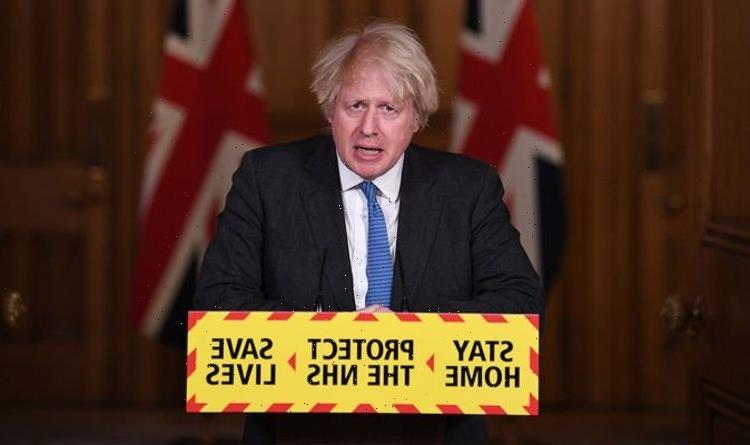Omicron: Another 'more infectious variant will come' says doctor
We use your sign-up to provide content in ways you’ve consented to and to improve our understanding of you. This may include adverts from us and 3rd parties based on our understanding. You can unsubscribe at any time. More info
The UK Health Security Agency (UKHSA) has described the latest Omicron mutation, BA.2 as a “variant under investigation”. So far, more than 500 infections have been confirmed in England. UKHSA also noted that further analysis will be carried out into BA.2 to better understand how the newest variant could affect how the UK tackles the pandemic.
Public health officials have repeatedly advised Covid booster jabs offer the best protection against Omicron and are the best chance of getting through the pandemic.
It is not known where BA.2 first originated, but now 40 countries have uploaded more than 8,000 BA.2 sequences since mid-November.
The first sequences were submitted from the Philippines and the highest number of samples have been uploaded from Denmark, where 6,411 cases have been found by Friday.
The latest data from UKHSA found it appears to be able to spread faster than the original Omicron, but more research is needed to be certain – with it now officially a variant under investigation.


Dr Meera Chand, COVID-19 Incident Director at UKHSA, said: “It is the nature of viruses to evolve and mutate, so it’s to be expected that we will continue to see new variants emerge as the pandemic goes on.”
With uncertainty over the new mutation still high, experts are questioning whether it’s the best time for the government to end its Plan B Covid measures.
Dr Kevin Purcell shared a graph showing the daily confirmed cases in Denmark and Portugal to show why it may be a bad idea to end all Covid measures.
He tweeted: “BA.1 introduction has a high growth rate which slows but then BA.2 takes off growth rate increases again?

“BA.2 became the majority Omicron variant in DK on January 2 and is now growing in Portugal.
“Just in time for dropping Plan B in the UK?”
Last week Prime Minister Boris Johnson announced he would not be extending his Plan B Covid measures – which mandated Covid passes for large events and made face masks in indoor spaces compulsory – beyond January 26.
He also said he was planning to remove further rules such as self-isolation for those infected with the virus this spring.
DON’T MISS
Boris on brink: Red Wall poll signal end of the road for PM [POLL]
EU Galileo blow as UK’s OneWeb network signs major deals [REPORT]
EU helpless over Russia thanks to Merkel as Biden poised to step in [INSIGHT]

Health Secretary Sajid Javid said he will be setting out a plan on how the country can “learn to live with Covid” in the coming weeks.
He told MPs that vaccines, treatments such as antivirals, and testing will be “top of the list”.
The government has also faced calls from charities that support the UK’s most vulnerable patients to impose basic restrictions like mandatory mask wearing.
Helen Rowntree, director of research, services and engagement for Blood Cancer UK, slammed ministers for not considering the needs of immunocompromised people when making the decision.

She said: “The government should be talking about the fact that immunocompromised people are still vulnerable to Covid and explaining this to the public.
“The more people who wear masks and keep their distance in crowded places, the more that immunocompromised people will be able to live normal lives.”
Kidney Care UK’s policy director, Fiona Loud, added “We want to say thank you to everyone who does recognise that the pandemic still isn’t over for thousands of kidney patients who are still vulnerable to COVID-19.
“Whether it’s employers considering more flexible working or people continuing to wear masks when they are no longer mandated: thank you.”
Source: Read Full Article
